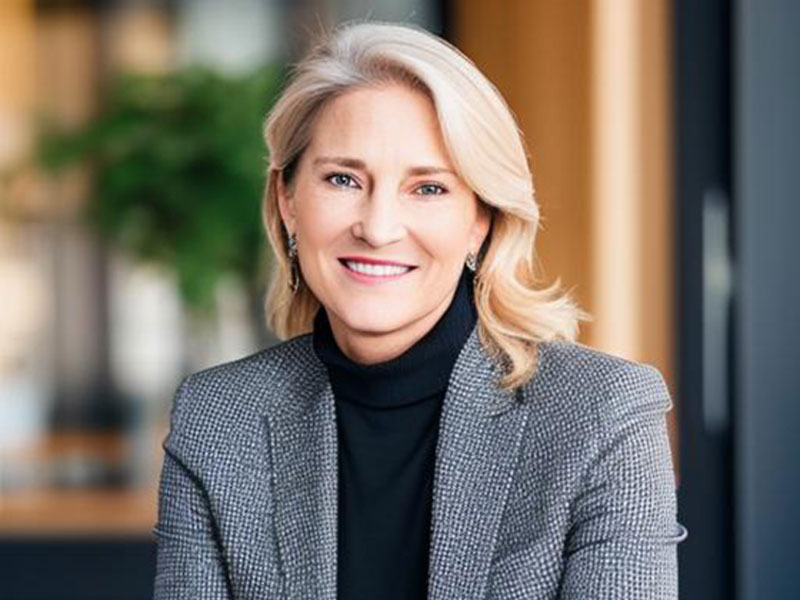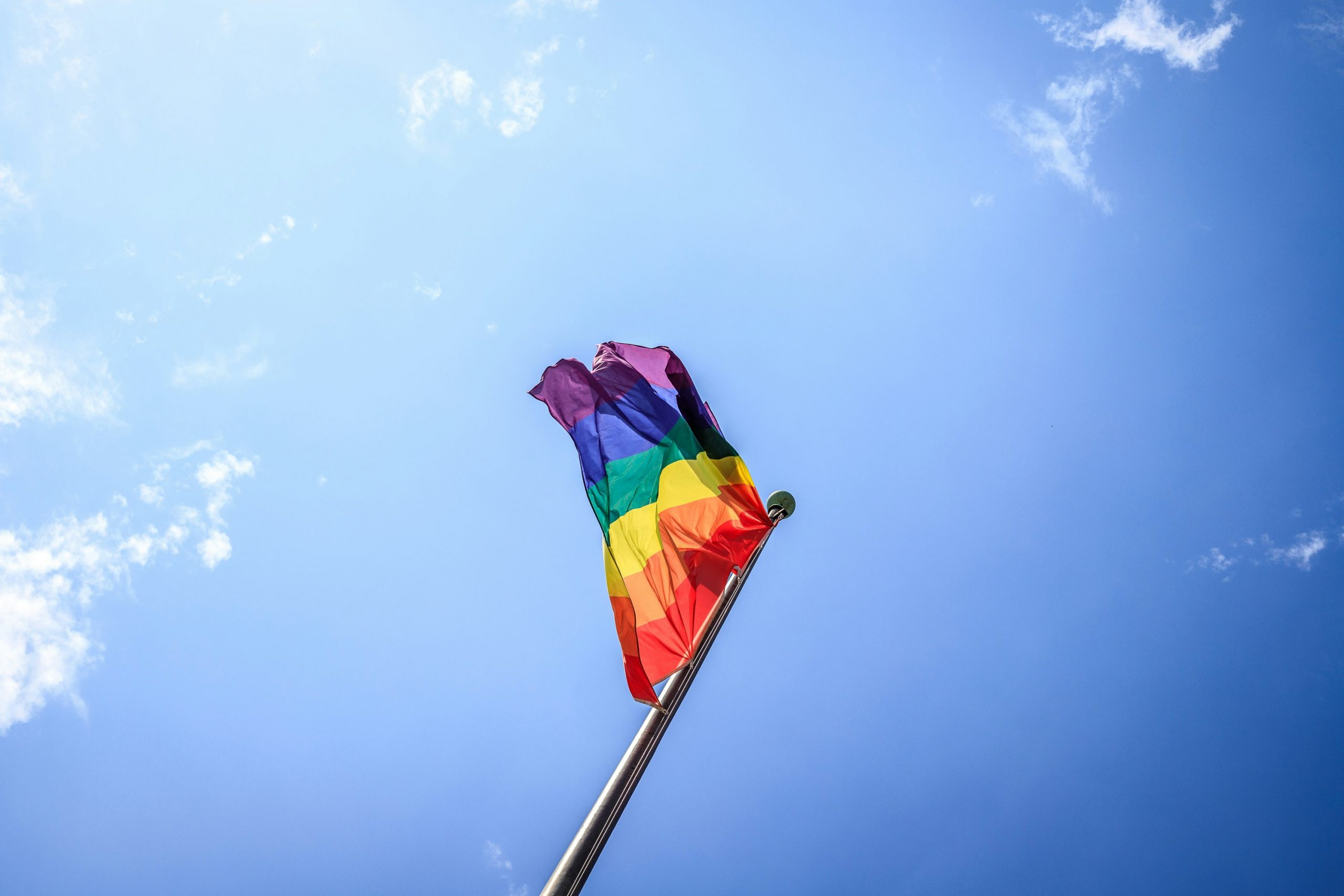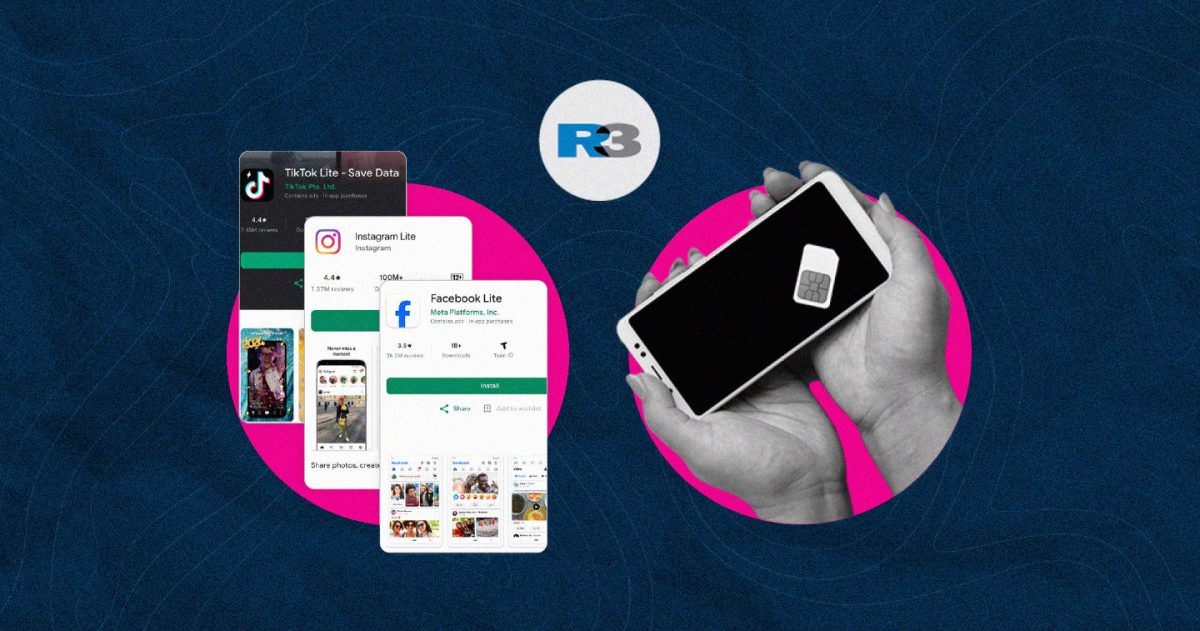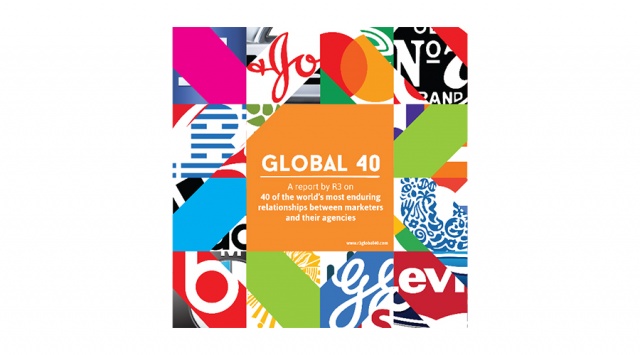
Client agency relationships are under pressure. Many say that in the current economy the AOR title is dead and clients are often accused of agency hopping in a bid to stretch their marketing dollars. Many are even taking their core activities such as social media and digital in house and top talent is deserting agencies for the digital havens of Google, Facebook and Apple.
With this backdrop, independent global consulting firm R3 commissioned a study to look at the global client/agency relationship and identify the secrets to the best partnerships. The study collected over 100 submissions from leading global marketers and their agencies, before a final report – Global 40 – was issued.
Here are the clients who know how to make their relationships with agencies work:
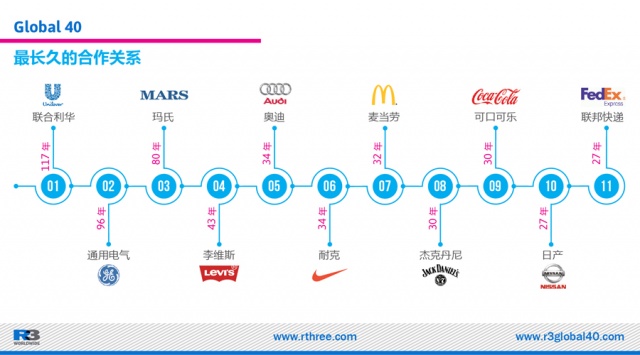
Here’s the full list of the 40 clients:
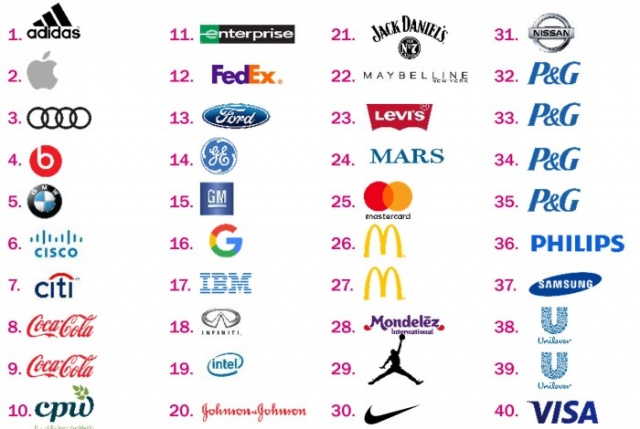
The findings suggest that while marriage is under pressure, the value of a trusted global partnership can drive brand equity, business results and shareholder value. The 40 relationships in this study have lasted for an average of 22 years, compared to the industry average of 3.2 years – proving that managed pro-actively, these commitments can endure.
According to the report, four of the top relationships are from the world’s largest marketer, Procter & Gamble. The report said the company invests as much internal time on training its own team on agency management as it does immersing the agencies.
Long term competitor, Unilever, appears twice, including one relationship that stretches back 117 years. Coca-Cola, Nike and McDonald’s have relationships involving their core creative agencies, but also media, digital and activation agencies as well.
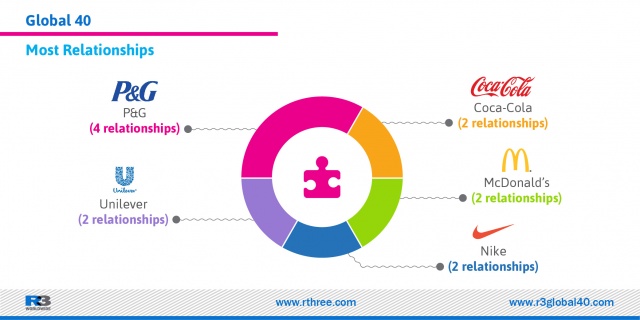
“Great marriages require mutual trust, a common understanding and clear goals,” said Greg Paull, principal of R3. “What separates these partnerships is a sense that both sides are working to improve brand outcomes, separate to personal agendas, politics and infighting,” he added.
And of course, no good marriage is just a one way street. Here are the agencies who have really put their back into making their long term relationships work.
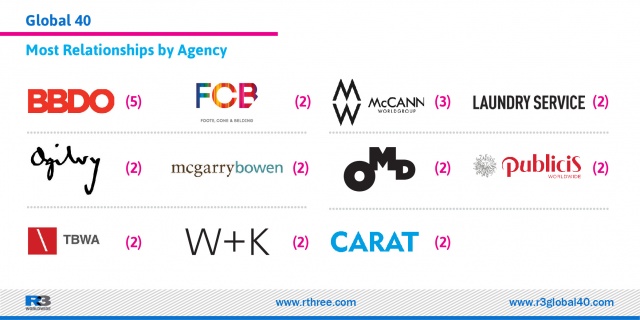
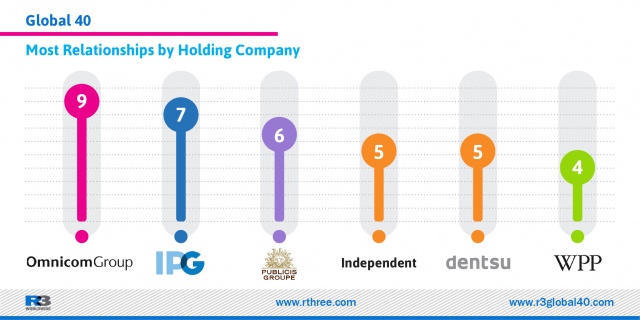
So what does it take to make a long standing relationship work? The study drew some important conclusions for CMOs on working with agencies on a global basis
Look to new models – All cases in the report had experimented and tried new ways of working, structures and compensation outcomes. In a changing world, there is no final approach, only a constantly evolving one.
Face time matters – Despite the advent of technology, the best partnerships find ways to regularly connect to share best practice. One marketer went so far as to hold a conference only for its global agencies to connect and collaborate.
Focus on outcomes, not inputs – Agencies are increasingly putting “skin in the game” as witnessed by McDonald’s recent Omnicom appointment. By setting up mutually common objectives, both sides are aligned to the right things.
Take digital seriously – Too many companies are buying digital by the yard, not by the year. Global CMOs need a strategic digital partner to help them navigate through a real digital transformation, not just a tactical execution partner.
Immersion both ways – Whether its agencies attending sales calls, flipping burgers or working the store, building that understanding of a client’s business remains more critical than ever. Likewise, the best clients are intimately aware of their own agency’s work for other companies, their talent growth and internal initiatives.
Benchmark and evaluate – Global CMOs and agencies need to share a dashboard of “Best Practice”, always looking to improve and drive effectiveness and efficiency.
Meanwhile, to judge the entries, R3 established rigorous criteria in advance. Submissions were given preference to the top 100 brands, proven on innovation and working process – and most importantly, results. Only those with clear metrics set and measured made it to the final 40.
Source: Marketing Interactive

